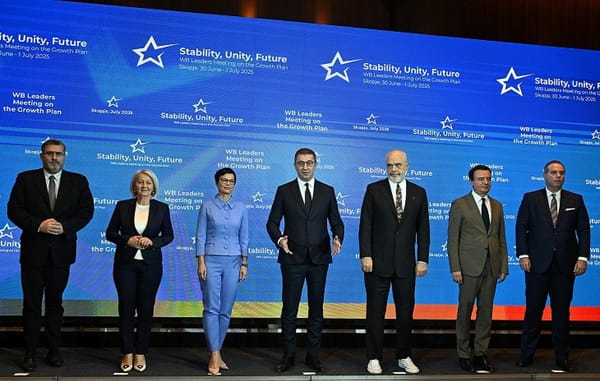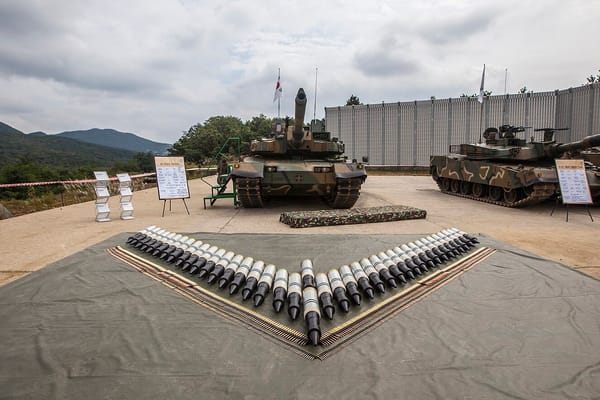
FDI paints rosier picture for Poland, Romania - OECD report
Central and Eastern European (CEE) countries are still navigating post-pandemic economic challenges amid newer geopolitical tensions, according to the Economic Outlook December 2024 report from the Organisation for Economic Co-operation and Development (OECD). Inflationary pressures, labour shortages, and weakened demand from key European markets, most notably Germany, are affecting industrial output and trade, the OECD writes.
Industrial output falls in Hungary, FDI up in Poland, Romania
Hungary, Slovakia and Czechia are bolstering domestic industries and attracting foreign investments to stabilise their economies, but face significant fiscal and policy constraints. For instance, the OECD notes, Hungary’s industrial output contracted by 3.2% year-on-year in Q3 of 2024, highlighting the strain on its export-driven economy.
Foreign direct investment (FDI) has boosted renewable energy, IT, and manufacturing sectors in Poland and Romania, which respectively attracted USD 16bn (EUR 15.14bn) and USD 11bn (EUR 10.4bn) in 2023.
Hungary, despite its recent negative credit outlook rating from Moody’s, has secured major investments from Chinese companies including EV battery manufacturer CATL and carmaker BYD, totalling over USD 5bn (EUR 4.73bn).
Despite making strides in fintech, Bulgaria recorded a 9% year-on-year decline in inward FDI in H1 of 2024, reflecting investor concerns over political stability and labour market constraints, the OECD writes.
CEE seeks secure energy sources
Energy security is a priority across the region, driving substantial policy initiatives and international cooperation. Greece has positioned itself as a key energy hub, with its LNG terminals handling 5.2bn cubic metres of gas in 2024, supporting neighbouring Bulgaria, Serbia and North Macedonia.
In the Baltics, Estonia, Latvia, and Lithuania continue to lead in renewable energy adoption, with Lithuania meeting 48% of its electricity needs from renewables in 2023. Croatia’s Adriatic LNG terminal, which processed 2.8bn cubic metres in 2023, is strengthening regional energy independence and Slovenia’s energy resilience through planned pipeline expansions.
EU funding plays a critical role in shaping fiscal and economic policies, the OECD notes. Slovakia, Czechia, and Romania are utilising their share of the EUR 723bn EU Recovery and Resilience Facility to implement reforms to unlock further investment. Slovakia has earmarked EUR 6.3bn for green and digital projects.
EU disputes leave Hungary, Slovakia hanging
However, political instability in Slovakia and Hungary’s ongoing disputes with Brussels over rule-of-law issues threaten to delay funding disbursements. Hungary’s public debt climbed to 77.3% of GDP in 2024, up from 73.5% in 2023, prompting calls for greater fiscal discipline.
Trade challenges persist as weaker European demand impacts the export-driven economies of Slovakia, Poland and Hungary – for example, the latter country’s exports to Germany, its largest trading partner, fell by 4.5% in 2024.
Efforts to diversify markets have seen Lithuania increase exports of high-value technology products by 12% year-on-year, while Albania and Bosnia and Herzegovina are leveraging EU accession-related infrastructure investments to boost trade competitiveness, according to the OECD.
Croatian tourist numbers soar
Tourism remains vital to the economies of both Croatia and Montenegro. Croatia’s tourism revenues surged by 17% in 2024, exceeding EUR 12bn, driven by a record 21mn arrivals. Slovenia’s eco-tourism sector also saw double-digit growth, attracting environmentally conscious travellers. However, labour shortages in Bulgaria are still hindering its ability to capitalise fully on the tourism rebound.
Political developments significantly influence business and investment across the region. Serbia’s trade volume with the EU increased by 8% in 2024, supported by energy agreements and growing Chinese investment.
Meanwhile, North Macedonia and Montenegro are advancing their EU membership bids, with North Macedonia securing EUR 1.2bn in EU infrastructure grants this year. However, disputes between Serbia and Kosovo over trade and border agreements still undermine regional cohesion and discourage foreign investors.
CEE faces challenges, the OECD concludes. While countries leverage EU funds, foreign investments, and energy diversification to maintain growth, external risks and political uncertainties remain substantial hurdles. Achieving sustainable development requires balancing fiscal discipline, regional cooperation, and innovative strategies tailored to evolving global dynamics.





